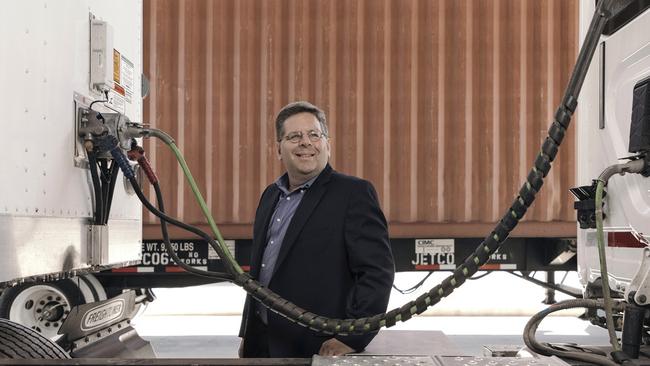It doesn’t help for a manager to be too cocky when leading a company
Overconfidence can often blind managers to their own failings and prevent them from providing appropriate leadership.

Of the many overconfident leaders Bill Treasurer has coached in his career, one stands out.
The software start-up founder and former paratrooper, whom Treasurer declines to name publicly, had a brash manner with customers — sometimes chewing them out in profanely worded emails — and berated staff in front of others.
The man’s style sowed distrust and caused his people to shut down, recalls Treasurer, a leadership consultant. There is a fine line between being an overconfident executive and being a highly arrogant jerk. The latter tend to view criticism “as an insult to reject” — while confident leaders heed feedback and make changes, Treasurer wrote in his book, A Leadership Kick in the Ass.
Treasurer urged the man to choose his words more carefully and attempt greater diplomacy. Not long after, he sold his firm and left his new corporate parent within a year. He now produces electronic music.
Executives cannot succeed without self-confidence but too much can be a career killer. Strong-headed senior managers who exaggerate their abilities and struggle to admit mistakes may find themselves on the outs in an era of flat organisations and greater transparency, recruiters and leadership experts say.
“Companies have become so complex that they increasingly prefer executives who are open, inclusive and collaborative rather than overconfident,” says Stuart Crandell, senior vice-president of Korn Ferry Institute, the research arm of recruiters Korn Ferry International.
Before recent corporate scandals, “overconfidence would not typically derail a CEO”, he says.
Companies that failed during those scandals, such as Enron, were led by overconfident executives, says Don Moore, a professor at University of California, Berkeley’s Haas School of Business. Moore has published 26 research papers on overconfidence.
Often hailed as charismatic innovators at first, overly confident bosses tend to pursue destructive acquisitions or get forced out, researchers find. “They take too many risks,” Moore says. Top executives are especially susceptible because they “attribute their success to their own brilliance and neglect the role of circumstance or good fortune”.
Leaders can self-correct. Just ask Brian Fielkow, chief executive and majority owner of Jetco Delivery, a Houston provider of trucking services with 210 staff.
Fielkow stressed workplace safety and his firm’s spectacular safety record. In November 2015, however, staff started to report an unusual number of minor violations and near misses.
The Jetco chief initially paid little heed because “I was so overconfident that my procedures were working”, he says. When Fielkow reached out to members of Jetco’s driver committee, he discovered those staff felt growing concern about frequent close calls.
In January last year the chief executive suspended operations for a day and required every worker to attend a safety session where they reviewed those near misses and devised remedies. For example, Jetco expanded its use of truck cameras to detect near misses and coach drivers after they happened.
Fielkow says he now gets more updates about truck drivers’ close calls and has replaced overconfidence “with a chronic sense of unease about safety”. He says Jetco had its best safety performance in the year to January 31 in the nearly 11 years since he purchased the company.
The bravado that helps senior managers in early stretch assignments may not suit a higher-level role. “Effective leaders use a quieter confidence,” observes Duane Petersen, a top manager at Walsh Construction Co. Petersen worked with Treasurer for six months after a 2010 performance assessment, known as a 360-degree review, where colleagues and subordinates described him as a micromanager who believed some others lacked his smarts. The appraisal also said the then-project manager frequently chewed out underperformers in front of their peers.
“It was humbling, obviously,” Petersen says.
He thinks his overconfidence reflected his aggressive style and years of successful projects, making him impatient with lieutenants who did not follow suit.
Advised by Treasurer, Petersen held off from publicly confronting one employee who failed to complete a critical project task. He waited 24 hours before conferring with that individual and his supervisor to craft a solution.
Learning patience “was really hard”, he says.
Petersen also asked two respected colleagues to be his “truth tellers”, giving them free rein to interrupt “if I ever get out of control” with a subordinate during meetings. “They intervened publicly … in very smart ways.”
Petersen’s next 360-degree appraisal, completed in 2012, revealed dramatic improvements. Since then, “there have been isolated incidents where I reflect that I could have used a better tact”, he says.
Walsh promoted Petersen to program manager in 2014 — and he says his employer may advance him to vice-president this year.


